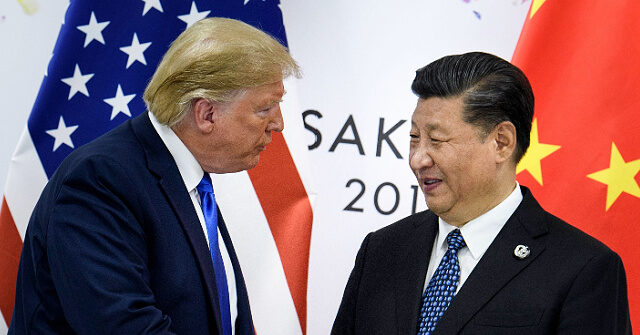In a noteworthy development, President-elect Donald Trump extended an invitation to Chinese leader Xi Jinping to attend his upcoming inauguration in January, as reported by CBS News. According to various sources, the invitation was issued following Trump’s electoral victory, although it remains unclear whether Xi has accepted the offer. Trump’s administration appears keen on establishing strong diplomatic ties with world leaders early on, with spokesperson Karoline Leavitt asserting that many leaders are eager to meet with Trump due to his expected return to power and his proposed approach of restoring global peace through enhanced American strength.
Leavitt’s statement reflects a broader trend among world leaders, who are showing interest in engaging with Trump. Among those reportedly considering attendance at the inauguration is Hungary’s Prime Minister Viktor Orbán, underscoring the anticipation surrounding Trump’s presidency. Historically, however, the presence of foreign leaders at U.S. presidential inaugurations is uncommon. State Department records dating back to 1874 indicate that no foreign heads of state have ever participated in these ceremonial transfers of power, though ambassadors and diplomats are typically invited to attend.
Following Trump’s electoral success, international figures such as French President Emmanuel Macron, Ukrainian President Volodymyr Zelensky, and Israeli Prime Minister Benjamin Netanyahu reached out to congratulate him. Additionally, meetings between Trump and other notable leaders, including Canadian Prime Minister Justin Trudeau and Argentina’s President Javier Milei, have taken place, signaling a potential shift in U.S. foreign relations. These interactions suggest that Trump’s presidency may reconfigure existing geopolitical alliances, particularly regarding engagement with traditional allies.
The invitation to Xi comes amid Trump’s previous threats to impose tariffs on China, particularly aimed at addressing the influx of drugs, especially fentanyl, into the United States. Trump has expressed his frustration with China’s handling of the drug issue and has advocated for a substantial 10% tariff on Chinese goods until the situation is addressed. His administration has pointed to an ongoing concern regarding the flow of narcotics entering the U.S., predominantly through channels involving Mexico, and has urged for accountability from the Chinese government in curbing these exports.
Trump’s tough stance on China, coupled with his focus on drug enforcement, underscores a larger narrative of prioritizing national security and economic interests within his administration. The dynamics between the U.S. and China could become a significant aspect of Trump’s foreign policy approach, as he looks to leverage economic tools to facilitate negotiations on issues that have direct implications for American citizens. This potential friction may shape discussions if Xi attends the inauguration and highlights Trump’s emphasis on putting American interests first in international relations.
As the inauguration approaches, the diplomatic landscape appears to be in flux, with Trump poised to redefine U.S. interactions on a global scale. The interest from global leaders, including a figure as prominent as Xi, reflects a recognition of Trump’s influential position and the potential for consequential engagements. Ultimately, the implications of this invitation may extend beyond the ceremonial aspects of the inauguration, signaling the beginning of a complex and potentially contentious diplomatic era under Trump’s presidency.

